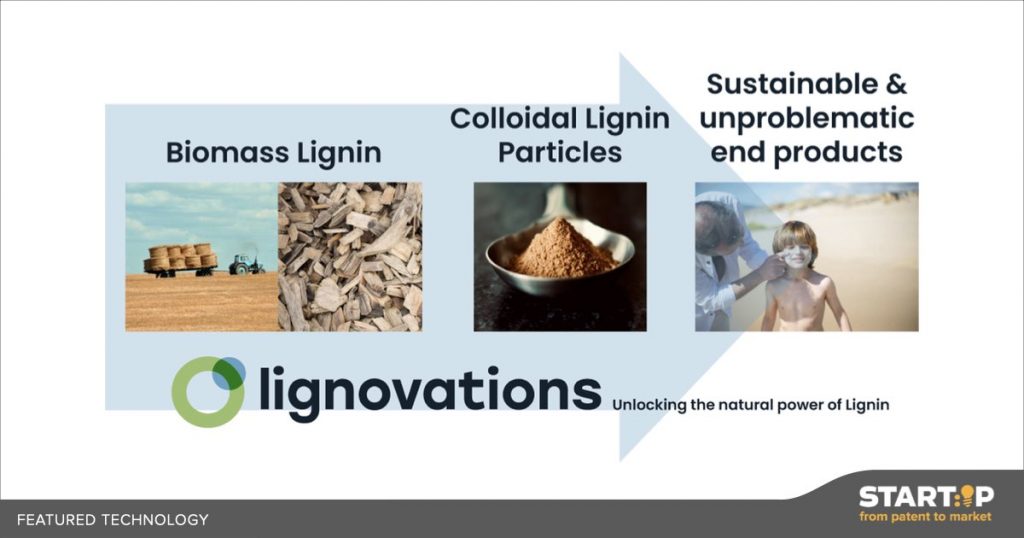Active ingredients are common in everyday products, for example as antimicrobial, antioxidative or emulsifying agents in cosmetics, paints and wood preservatives. However, standard active ingredients are derived from fossil fuels, meaning they are not biodegradable and are associated with adverse health effects and they accumulate in the environment. This technology is an eco-friendly alternative, creating active ingredients from an abundant plant source.
START:IP
Technology Abstract
Bio-based Active Ingredients
Industrial Active Ingredients Made from Plant Source
Bookmark3
This alternative active ingredient is derived from a plant component known as lignin, which is found abundantly in nature via woody plants. Lignin imparts many of the desirable properties of active ingredients to plants – i.e. it is a protective layer against environmental stressors such as UV, microbes, fungi and oxidation. This technology harnesses these beneficial properties of lignin by converting it from a raw plant material into very small particles – so-called “Colloidal Lignin”. When lignin is converted to this very small form, it maximizes its functionality and enables it to be used in almost arbitrary formulations, very much alike standard active ingredients derived from fossil fuels. Colloidal lignin is completely biodegradable and, furthermore, the production process to convert lignin into the colloidal particles does not require harsh chemicals, resulting in an environmentally friendly and energy-efficient manufacturing procedure. Other plant-based active ingredients do exist, but they are limited in their performance and, furthermore, are difficult to produce in large volumes and at acceptable prices. In contrast, colloidal lignin has been demonstrated to work effectively as a replacement for synthetic active ingredients (e.g. UV booster, antioxidant, antimicrobial and emulsifier) in several applications (e.g. cosmetics, wood varnishes and coatings). Lignin is found in almost any plant source, and therefore can be isolated in sufficient quantities. It can even be extracted from biomass waste, opening the possibility for a circular economy model in the long-term.
In summary, colloidal lignin is an effective natural replacement for synthetic active ingredients, that would result in more eco-friendly, sustainable, and non-toxic everyday products.
If you click the button and fill out the form to be “matched” with a technology, we will introduce you to the scientist / transfer manager of the respective research institution. In this way, you immediately have the chance to receive more detailed information and to start discussions about a possible joint project.




